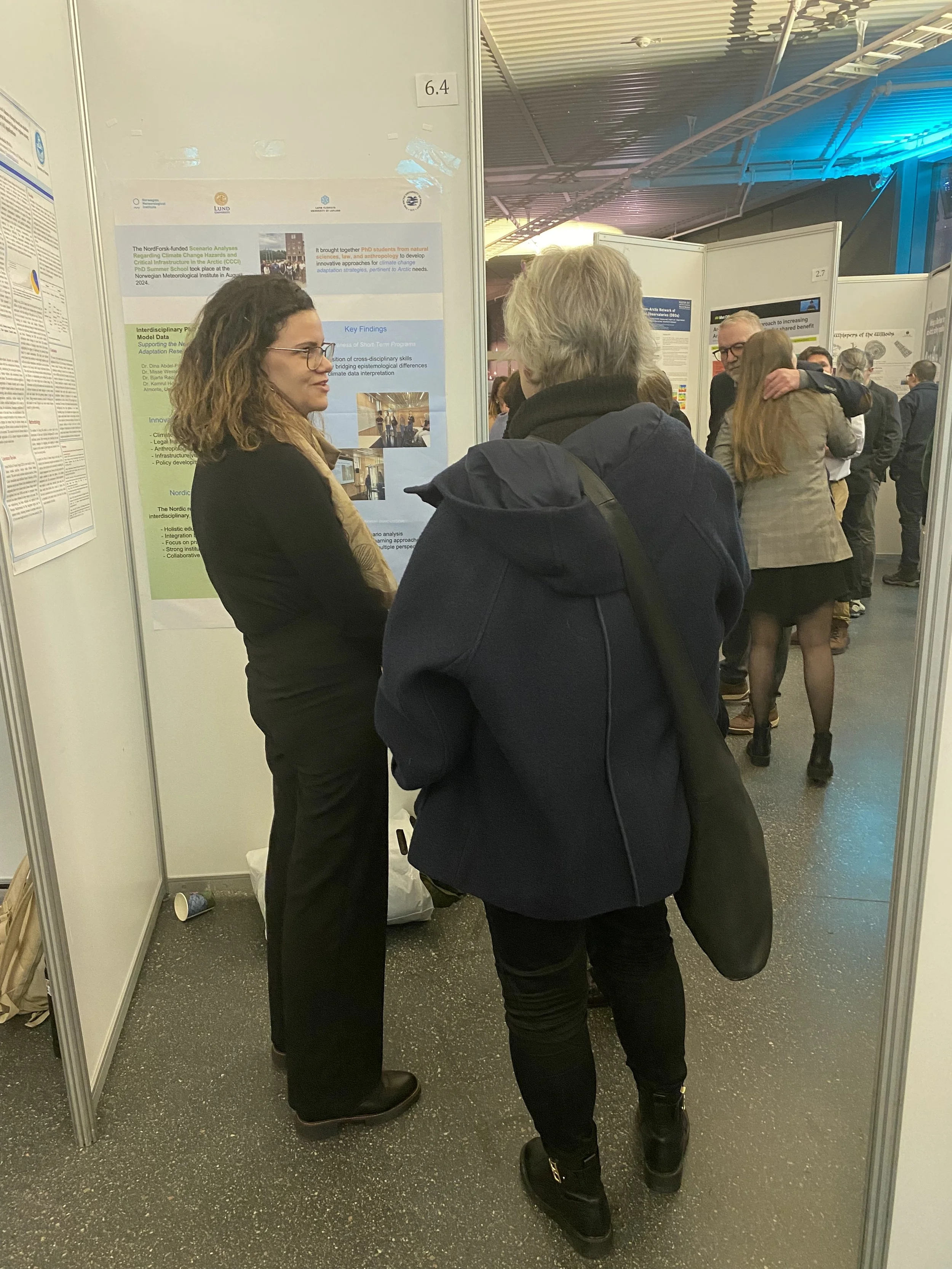PCAPS at Arctic Frontiers 2025: The road to IPY 5 (2032 - 2033) and exploring decision-making for climate hazards in the Arctic
Arctic Frontiers 2025 took place in Tromsø, Norway from 27 - 30 January. Dina Abdel-Fattah, PCAPS International Coordination Office (ICO) Manager, presented about PCAPS in the International Polar Year (IPY) V: Research, Data and Science Cooperation session. In addition, Dina co-hosted two events for early career researchers during Arctic Frontiers, as a follow-up from the NordForsk-funded Scenario Analyses Regarding Climate Change Hazards and Critical Infrastructures in the Arctic (CCCI) PhD summer school that was held at the Norwegian Meteorological Institute last summer (12 - 16 August 2024).
Dina Abdel-Fattah presenting about PCAPS at Arctic Frontiers 2025. Photo credit: Arctic Frontiers
Arctic Frontiers is an annual conference held in Tromsø, Norway, that brings together a variety of different actors working on and interested in the Arctic. From scientists to high-level politicians, a broad range of perspectives are shared and discussed at Arctic Frontiers every year. This year’s Arctic Frontiers theme was beyond borders, a fitting theme for PCAPS’ goals and ambitions. Notably, planning for the upcoming 5th International Polar Year (IPY) in 2032 - 2033 was one of the central topics in the science sessions. Dina presented PCAPS during one of these sessions, highlighting PCAPS work to support both the planning and implementation of IPY 5.
In addition, two events took place during Arctic Frontiers, aimed at facilitating dialogue between early career researchers and policymakers and experts on how to support policy and decision-making for climate hazards in the Arctic. These events were a follow-up to the CCCI PhD Summer School, that was organised via the Norwegian Meteorological Institute, Lund University in Sweden, the University of Lapland in Finland, and UiT - The Arctic University of Norway. The results of the CCCI PhD Summer School were also shared in the poster session at Arctic Frontiers. Notably, two of the PhD summer school students (Stian Klevien, UiT and Are Frode Kvanum, UiO/Norwegian Meteorological Institute) presented the policy brief they developed collaboratively from their work from the PhD Summer School at the poster session.
The first event was a closed-door workshop between PhD students, from different disciplinary backgrounds, and policymakers and experts. The multi-hour discussion was lively, robust, and thought-provoking, bringing to light the importance of discussing the challenges of, and ideally finding solutions to, conducting policy relevant research.
Photos from the interactive workshop at Arctic Frontiers 2025. Photo credit: Arctic Frontiers.
The second event was a public panel discussion, targeting how to best conduct research on climate hazards in an Arctic context, that benefits both science and society. Panelists included Lena Cappelen Endresen from the Research Council of Norway, Penelope Mae Wagner from the Norwegian Meteorological Institute, Toril Utvik from Equinor, Jonas Johansson from Lund University, and Are Frode Kvanum from the Norwegian Meteorological Institute. The broad range of disciplinary and institutional perspectives, as well as different career stages, of the participants provided for a fruitful and insightful reflection of both the limitations and opportunities in developing research that can be uptaken by societal actors.
Panel discussion at Arctic Frontiers 2025. From left to right: Lena Cappelen Endresen, Penelope Mae Wagner, Toril Utvik, Jonas Johansson, Are Frode Kvanum, and Dina Abdel-Fattah.
All in all, Arctic Frontiers 2025 provided various different outlets to present the multifaceted work PCAPS undertakes.








